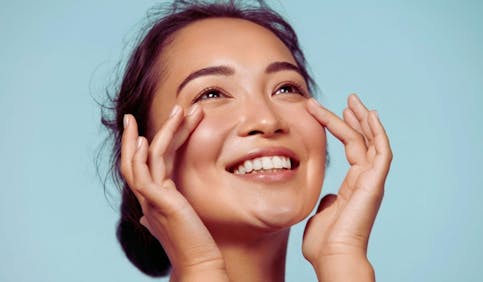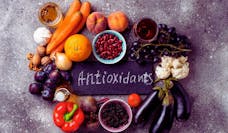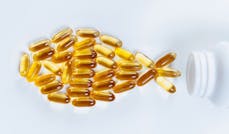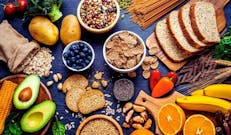

The Benefits of a Balanced Diet for Glowing Skin
Growing up, my grandmother always emphasized the importance of eating a variety of colorful fruits and vegetables.
She would often say, “The more colors on your plate, the brighter your skin will glow.” As a child, I didn’t fully understand her wisdom.
But now, after years of exploring the science behind nutrition and skin health, her words resonate deeply.
The Benefits of a Balanced Diet for Glowing Skin
A balanced diet is a crucial element for maintaining overall health, and its benefits extend to skin health as well. The skin, being the largest organ of the body, reflects the internal health and wellbeing of an individual. A diet rich in essential nutrients can significantly enhance skin appearance, making it radiant and glowing. Here are the key benefits of a balanced diet for glowing skin, supported by scientific research and expert opinions.
Essential Nutrients for Skin Health
Vitamins
Vitamins play a vital role in skin health. Specifically, vitamins A, C, and E are known for their skin-enhancing properties.
- Vitamin A: This vitamin is essential for skin repair and maintenance. It helps reduce acne and promotes cell turnover, which is crucial for a healthy complexion. Foods rich in vitamin A include sweet potatoes, carrots, and dark leafy greens.
- Vitamin C: Known for its antioxidant properties, vitamin C helps in collagen synthesis, which is important for skin elasticity and firmness. Citrus fruits, strawberries, and bell peppers are excellent sources of vitamin C.
- Vitamin E: This vitamin protects the skin from oxidative stress and damage caused by free radicals. Nuts, seeds, and spinach are good sources of vitamin E.
Minerals
Minerals such as zinc and selenium also contribute significantly to skin health.
- Zinc: This mineral is vital for skin healing and can help reduce inflammation and prevent acne. It can be found in foods like pumpkin seeds, lentils, and chickpeas.
- Selenium: Selenium helps protect the skin from damage caused by UV rays and maintains skin elasticity. Brazil nuts, fish, and eggs are rich in selenium.
Hydration and Skin Health
Staying hydrated is essential for maintaining skin moisture and elasticity. Water helps to flush out toxins from the body, which can otherwise accumulate and cause skin issues such as acne and dullness. Including water-rich foods like cucumbers, watermelon, and oranges can contribute to skin hydration.
Antioxidants and Skin Protection
Antioxidants play a crucial role in protecting the skin from damage caused by free radicals, which are unstable molecules that can damage cells. A diet high in antioxidants can help to combat these effects, leading to healthier skin.
- Beta-carotene: Found in carrots, sweet potatoes, and squash, beta-carotene is converted into vitamin A in the body and helps repair skin cells.
- Flavonoids: These are present in foods like dark chocolate, berries, and green tea. They help reduce inflammation and protect the skin from environmental damage.
Omega-3 Fatty Acids
Omega-3 fatty acids are essential fats that the body cannot produce on its own. They are known for their anti-inflammatory properties, which can help reduce acne and redness.
Sources: Fatty fish like salmon, mackerel, and sardines are rich in omega-3s. Plant-based sources include flaxseeds, chia seeds, and walnuts.
The Role of Protein
Protein is essential for the repair and regeneration of skin cells. A diet that includes sufficient protein can help maintain skin strength and elasticity.
Sources: Lean meats, poultry, fish, eggs, legumes, and dairy products are excellent sources of protein.
Fiber and Detoxification
A diet high in fiber aids in digestion and helps to flush out toxins from the body. This process is crucial for preventing skin problems that can arise from an overloaded system.
Sources: Whole grains, fruits, vegetables, and legumes are rich in fiber.
Healthy Fats and Skin Moisture
Healthy fats are essential for maintaining the skin’s lipid barrier, which helps retain moisture and keep the skin hydrated.
Sources: Avocados, nuts, seeds, and olive oil provide healthy fats that contribute to glowing skin.
Examples of Balanced Diet Components for Glowing Skin
A balanced diet for glowing skin should include:
- Fruits and Vegetables: Aim for a variety of colors to ensure a range of nutrients.
- Lean Proteins: Include sources like chicken, fish, and legumes.
- Whole Grains: Opt for brown rice, quinoa, and whole wheat products.
- Healthy Fats: Include sources such as avocados, nuts, and olive oil.
- Hydration: Drink plenty of water and include water-rich foods in the diet.
Foods to Avoid for Healthy Skin
Certain foods can have a negative impact on skin health and should be consumed in moderation.
- Sugary Foods: Excess sugar can lead to insulin spikes, which may cause acne.
- Processed Foods: These often contain unhealthy fats and additives that can trigger inflammation and skin issues.
- Dairy Products: Some individuals may experience skin problems from dairy due to hormones present in milk.
- Practical Tips for Maintaining a Balanced Diet
- Meal Planning: Plan meals ahead to ensure a variety of nutrients.
- Reading Labels: Pay attention to ingredient lists to avoid added sugars and unhealthy fats.
- Moderation: Enjoy treats in moderation and focus on overall dietary balance.
A balanced diet rich in essential vitamins, minerals, antioxidants, omega-3 fatty acids, protein, fiber, and healthy fats can significantly improve skin health, making it glow from within. Staying hydrated and avoiding foods that negatively impact the skin are also crucial for maintaining a radiant complexion. By incorporating these dietary habits, achieving and maintaining glowing skin becomes a natural outcome of a healthy lifestyle.
© 2024 Hope, Health and Beauty | All Rights Reserved
This site is not a part of Google™ website or network of sites such as Youtube™ or any company owned by Google™ or Youtube™. Additionally this website is not endorsed by Google™ Youtube™ Inc. in any way. Google™ is a trademark for all their respective companies.

The Benefits of a Balanced Diet for Glowing Skin
Growing up, my grandmother always emphasized the importance of eating a variety of colorful fruits and vegetables.
She would often say, “The more colors on your plate, the brighter your skin will glow.” As a child, I didn’t fully understand her wisdom.
But now, after years of exploring the science behind nutrition and skin health, her words resonate deeply.
A balanced diet isn’t just about maintaining weight or overall health; it’s a secret to radiant, glowing skin.
The Benefits of a Balanced Diet for Glowing Skin
A balanced diet is a crucial element for maintaining overall health, and its benefits extend to skin health as well. The skin, being the largest organ of the body, reflects the internal health and wellbeing of an individual. A diet rich in essential nutrients can significantly enhance skin appearance, making it radiant and glowing. Here are the key benefits of a balanced diet for glowing skin, supported by scientific research and expert opinions.
Essential Nutrients for Skin Health
Vitamins
Vitamins play a vital role in skin health. Specifically, vitamins A, C, and E are known for their skin-enhancing properties.
- Vitamin A: This vitamin is essential for skin repair and maintenance. It helps reduce acne and promotes cell turnover, which is crucial for a healthy complexion. Foods rich in vitamin A include sweet potatoes, carrots, and dark leafy greens.
- Vitamin C: Known for its antioxidant properties, vitamin C helps in collagen synthesis, which is important for skin elasticity and firmness. Citrus fruits, strawberries, and bell peppers are excellent sources of vitamin C.
- Vitamin E: This vitamin protects the skin from oxidative stress and damage caused by free radicals. Nuts, seeds, and spinach are good sources of vitamin E.
Minerals
Minerals such as zinc and selenium also contribute significantly to skin health.
- Zinc: This mineral is vital for skin healing and can help reduce inflammation and prevent acne. It can be found in foods like pumpkin seeds, lentils, and chickpeas.
- Selenium: Selenium helps protect the skin from damage caused by UV rays and maintains skin elasticity. Brazil nuts, fish, and eggs are rich in selenium.
Hydration and Skin Health
Staying hydrated is essential for maintaining skin moisture and elasticity. Water helps to flush out toxins from the body, which can otherwise accumulate and cause skin issues such as acne and dullness. Including water-rich foods like cucumbers, watermelon, and oranges can contribute to skin hydration.
Antioxidants and Skin Protection
Antioxidants play a crucial role in protecting the skin from damage caused by free radicals, which are unstable molecules that can damage cells. A diet high in antioxidants can help to combat these effects, leading to healthier skin.
- Beta-carotene: Found in carrots, sweet potatoes, and squash, beta-carotene is converted into vitamin A in the body and helps repair skin cells.
- Flavonoids: These are present in foods like dark chocolate, berries, and green tea. They help reduce inflammation and protect the skin from environmental damage.
Omega-3 Fatty Acids
Omega-3 fatty acids are essential fats that the body cannot produce on its own. They are known for their anti-inflammatory properties, which can help reduce acne and redness.
Sources: Fatty fish like salmon, mackerel, and sardines are rich in omega-3s. Plant-based sources include flaxseeds, chia seeds, and walnuts.
The Role of Protein
Protein is essential for the repair and regeneration of skin cells. A diet that includes sufficient protein can help maintain skin strength and elasticity.
Sources: Lean meats, poultry, fish, eggs, legumes, and dairy products are excellent sources of protein.
Fiber and Detoxification
A diet high in fiber aids in digestion and helps to flush out toxins from the body. This process is crucial for preventing skin problems that can arise from an overloaded system.
Sources: Whole grains, fruits, vegetables, and legumes are rich in fiber.
Healthy Fats and Skin Moisture
Healthy fats are essential for maintaining the skin’s lipid barrier, which helps retain moisture and keep the skin hydrated.
Sources: Avocados, nuts, seeds, and olive oil provide healthy fats that contribute to glowing skin.
Examples of Balanced Diet Components for Glowing Skin
A balanced diet for glowing skin should include:
- Fruits and Vegetables: Aim for a variety of colors to ensure a range of nutrients.
- Lean Proteins: Include sources like chicken, fish, and legumes.
- Whole Grains: Opt for brown rice, quinoa, and whole wheat products.
- Healthy Fats: Include sources such as avocados, nuts, and olive oil.
- Hydration: Drink plenty of water and include water-rich foods in the diet.
Foods to Avoid for Healthy Skin
Certain foods can have a negative impact on skin health and should be consumed in moderation.
- Sugary Foods: Excess sugar can lead to insulin spikes, which may cause acne.
- Processed Foods: These often contain unhealthy fats and additives that can trigger inflammation and skin issues.
- Dairy Products: Some individuals may experience skin problems from dairy due to hormones present in milk.
- Practical Tips for Maintaining a Balanced Diet
- Meal Planning: Plan meals ahead to ensure a variety of nutrients.
- Reading Labels: Pay attention to ingredient lists to avoid added sugars and unhealthy fats.
- Moderation: Enjoy treats in moderation and focus on overall dietary balance.
A balanced diet rich in essential vitamins, minerals, antioxidants, omega-3 fatty acids, protein, fiber, and healthy fats can significantly improve skin health, making it glow from within. Staying hydrated and avoiding foods that negatively impact the skin are also crucial for maintaining a radiant complexion. By incorporating these dietary habits, achieving and maintaining glowing skin becomes a natural outcome of a healthy lifestyle.
© 2024 Hope, Healthy and Beauty | All Rights Reserved
This site is not a part of Google™ website or network of sites
such as Youtube™ or any company owned by Google™
or Youtube™. Additionally this website is not endorsed
by Google™ Youtube™ Inc. in any way. Google™ is a
trademark for all their respective companies.

A balanced diet isn’t just about maintaining weight or overall health;
it’s a secret to radiant, glowing skin.









